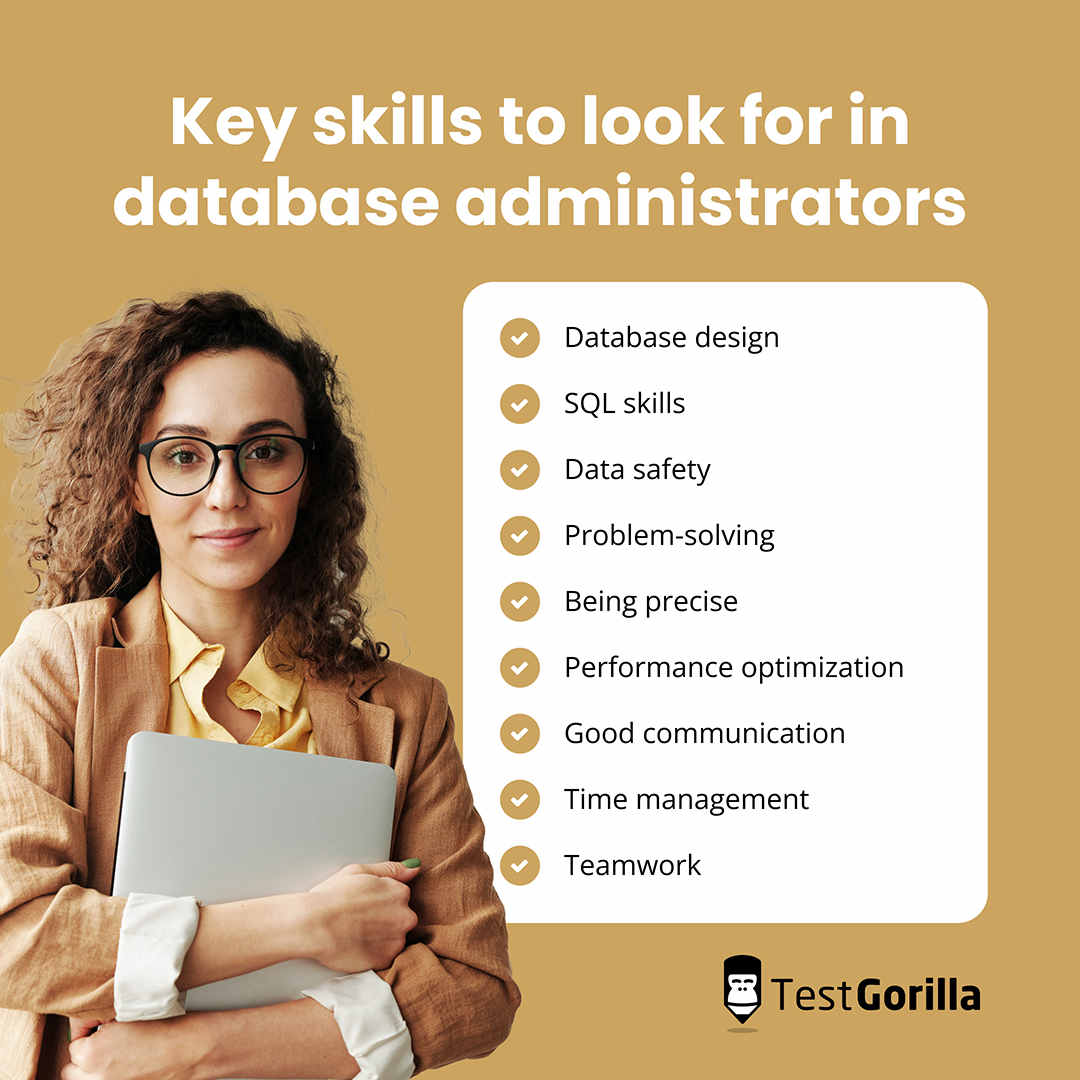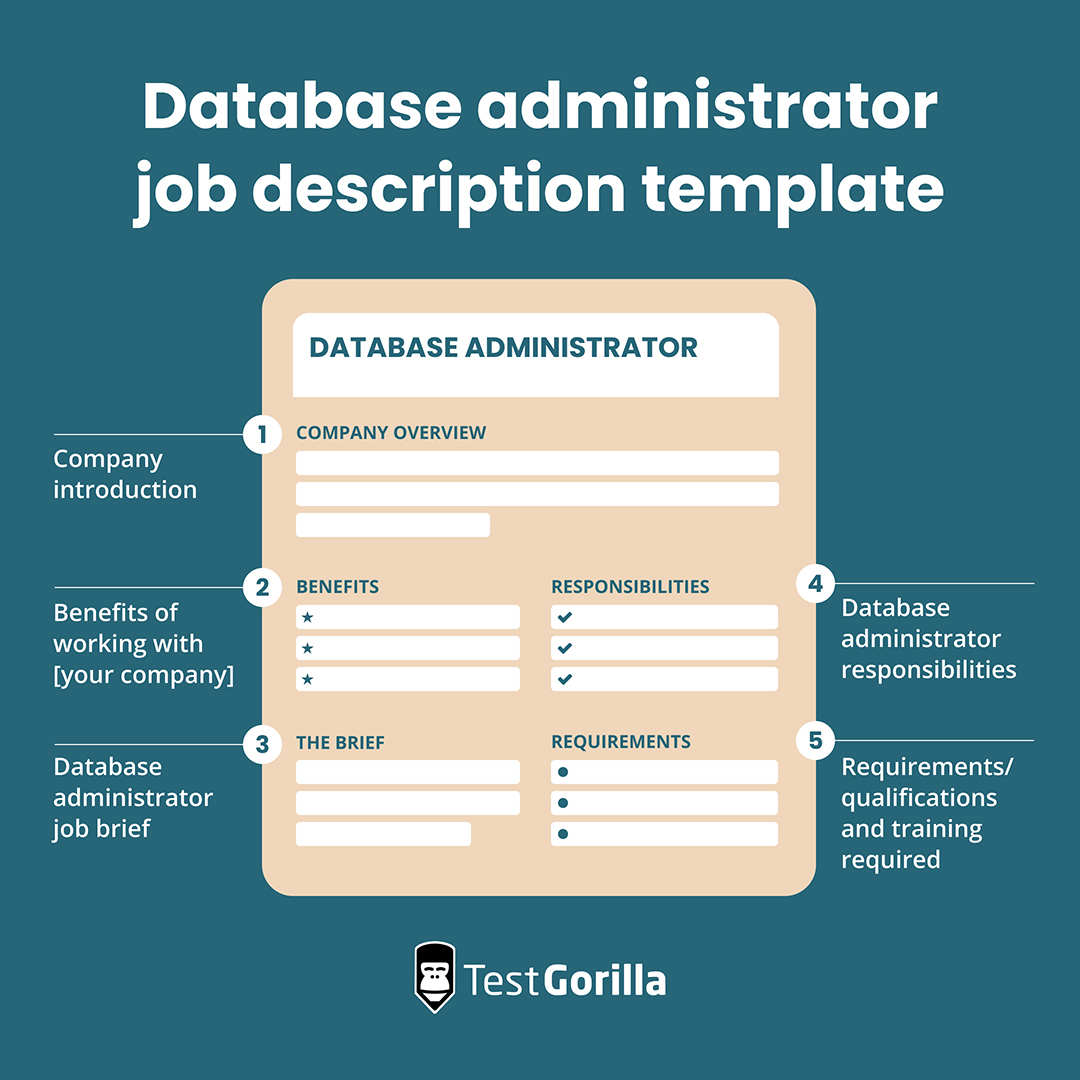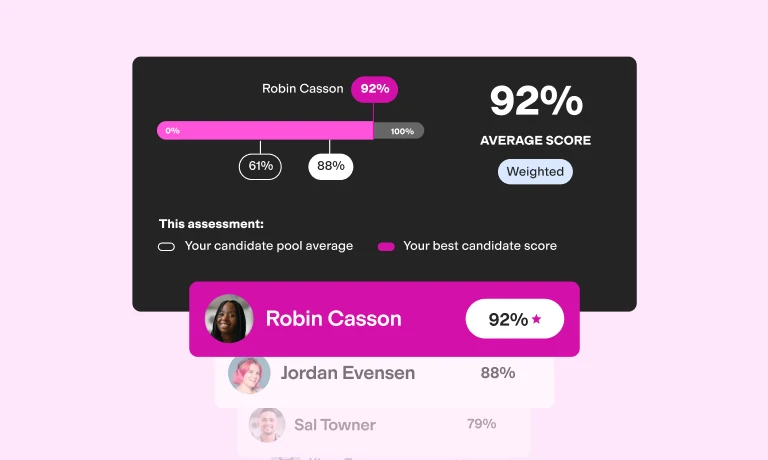A seasoned database administrator (DBA) can streamline your data management processes. With the right DBA on board, you boost security, improve performance, and ensure smoother business operations.
But failing to lay out expectations in your job description can lead to costly mis-hires. A mismatched DBA might overlook security flaws, slow down operations, or risk data loss during system glitches.
That's why a clear job description is crucial. It ensures new hires understand the databases they'll handle and the scope of their projects.
Luckily, we’re here to help. Below, we share what skills to look for in a database administrator, how to write an effective job description, and which common mistakes you should avoid. Plus, we have a template to get you started.
Table of contents
- What is a database administrator
- Key skills to look for in database administrators
- How to write an effective database administrator job description
- Database administrator job description template
- 2 things to avoid when writing a job description for database administrators
- Next steps: Attracting and assessing database administrator candidates
- FAQs
- How TestGorilla can help you find the best database administrators
What is a database administrator
A database administrator (DBA) manages and maintains databases, ensuring data is accurate and safe from breaches. They handle tasks like creating backups, restoring data, and speeding up database performance, using software like Oracle or SQL Server. This role helps businesses use data effectively, safeguarding and improving key operations, like customer relationship management, financial transactions, and inventory tracking.
Key skills to look for in database administrators
When crafting a job description for a database administrator, it's crucial to highlight both technical expertise and interpersonal traits. Here are nine key hard and soft database administrator skills to look for.
Database design: Setting up how data is stored, ensuring it's organized for easy retrieval.
SQL skills: Using SQL, a tool that helps fetch and analyze data from the database.
Data safety: Ensuring important data is backed up and can be restored in case of system failures.
Problem-solving: Identifying and resolving issues that affect database performance, such as slow data retrieval, conflicting data entries, or server overloads.
Being precise: Ensuring that data is consistently accurate and free from errors.
Performance optimization: Improving the speed and efficiency of how data is retrieved or stored using specific database commands, known as “queries.”
Good communication: Explaining complex database topics in simple terms to non-tech teams.
Time management: Juggling multiple database tasks effectively and ensuring timely backups, updates, and queries.
Teamwork: Working harmoniously with others to manage and access data smoothly.
The best insights on HR and recruitment, delivered to your inbox.
Biweekly updates. No spam. Unsubscribe any time.
How to write an effective database administrator job description
To prepare a great skills-based job description, follow these important steps.
Understand database specifics
Every organization has its preferred database systems. Whether it's Oracle for enterprise needs, SQL Server for Windows-centric environments, or MySQL for web applications, pinpoint which platforms new hires will use. By understanding these specifics, you lay the groundwork for the rest of your job description.
DBAs typically specialize in one or more database platforms. Their skills and experience are often honed for a particular system. Being clear about the systems they'll manage helps you attract candidates with the right expertise for your setup.
Define the scope
It's vital to lay out what you expect from a DBA. Are they mainly handling routine tasks like backups and making sure databases run smoothly? Or are they also shaping a longer-term game plan, deciding how data is stored or when it's time to move data to a new system?
Clearly state if you need someone for daily duties, big-picture planning, or a mix of both. This clarity helps candidates gauge if they're a good fit.
Emphasize collaboration
Database Administrators (DBAs) don't work in isolation. They're at the heart of an interconnected web that includes software developers, IT support, and sometimes even marketing or finance teams.
In your job description, underline the importance of good teamwork and communication. This ensures you bring in candidates who have both the technical chops and people skills.
Database administrator job description template
Take this template as your foundation and tweak it according to your requirements.
Company introduction
Start your job description with an overview of your company: when it was founded, where it’s located, what products or services it offers, and what standout achievements it has.
Describe the importance of database management for your company. For instance, you can touch on how efficient database management has been crucial in supporting business operations. Wrap up by sharing how excited you are to find that perfect fit who will elevate your team's work.
Benefits of working with [Your company]
Highlight the perks a database administrator will get at your company, from health benefits and retirement contributions to vacation days, remote work options, and other unique offerings.
Database administrator job brief
[Company name]
Job Title: [For example, Junior Database Administrator, Database Administrator, Senior Database Administrator]
Reports to: [For instance, Database Administrator, Senior Database Administrator, or IT Director]
Position Type: [Full-time or part-time; employee or independent contractor]
Location: [Remote, hybrid, or on-site]
[Compensation details]
Database administrator responsibilities
Ensure that company data is stored securely and create regular backups to prevent data loss in emergencies.
Check that databases run smoothly and quickly, making any necessary changes to improve speed and efficiency.
Safeguard data by setting up protective measures against unauthorized access, hacks, and breaches.
Regularly update database software and perform routine maintenance tasks to keep systems in top shape.
Investigate and fix any issues that arise with the databases.
Decide who gets access to which parts of the data, ensuring that employees can access the info they need without compromising security.
Help with moving data from one system or format to another, especially when new software or technologies are introduced.
Work with other departments, like the IT team and software developers, to make sure databases meet company needs and changes are implemented smoothly.
Requirements/Qualifications and training required
A bachelor’s or master’s degree in computer science, information technology, or a related field—OR equivalent work experience.
[3+] years' experience in database administration, specifically with platforms like Oracle, SQL Server, or MySQL.
Be sure to check out our other skills-based job descriptions, including those for administrative roles – such as our Zendesk administrator job description.
2 things to avoid when writing a job description for database administrators
Avoid these pitfalls when writing your database administrator job description.
1. Overemphasis on formal education
While a computer science background helps, many top DBAs might have non-traditional education but rich practical experience or certifications. Rather than saying, "Bachelor's degree in Computer Science required," you might write, "Bachelor's degree in a related field or equivalent experience.”
2. Skipping people skills
Remember, DBAs aren't lone wolves. They partner with IT, development, and even the marketing team depending on the project. So, while tech know-how is key, don’t forget crucial soft skills like communication and collaboration.
Instead of just jotting down "Experience with SQL Server tuning," try "Works well with IT and dev teams to ensure our databases run smoothly." It paints a clearer picture of the teamwork involved.
Next steps: Attracting and assessing database administrator candidates
Now that you’ve written an excellent database administrator job description, post it on job boards like Indeed and Linkedin, social media, and tech platforms like DBA Stack Exchange. You can also network at IT and tech events or hire a recruiter to bring in more skilled DBAs to apply.
Once you attract promising candidates, you can quickly evaluate and identify top performers with TestGorilla’s pre-employment assessment platform. For the most accurate results, combine different tests, like role-specific skills tests, soft skills tests, and personality assessments.
For example, start with TestGorilla’s database management and administration test to gauge candidates’ expertise in database design and performance. Then, pair it with a DISC Personality test to understand their unique personality traits.
If you’re hiring a SQL database administrator, you can combine our Microsoft SQL Server test with the Communication Skills test to assess both technical know-how and team collaboration.
If you choose to interview test takers, try these SQL server DBA interview questions. To learn more about their general knowledge, you can borrow these DBA interview questions.
FAQs
How technical should I get in the job description for a DBA?
You'll definitely want to mention key tech skills, like knowing Oracle or SQL Server. But don't forget to sprinkle in the broader tasks and people skills too. Aim for a balance: you want a candidate with strong technical acumen who can also collaborate effectively.
Should I detail DBA career progression in the job description?
Absolutely. Highlight paths like progressing from a junior to a senior DBA or leading database projects. Coupled with mentions of regular training, this can make the role very attractive to growth-focused candidates.
How TestGorilla can help you find the best database administrators
So you've cracked the code to crafting a stellar database administrator job description. Knowing your database landscape and honing in on essential soft skills makes all the difference.
But what's next? How do you hire a standout DBA? That's where TestGorilla steps in. We offer tests specifically designed for database administrator expertise, making sure you capture both the technical and team-player aspects.
Eager to streamline your hiring journey? Register for a free account now or set up a 30-minute demo to jump right in.
You've scrolled this far
Why not try TestGorilla for free, and see what happens when you put skills first.




















